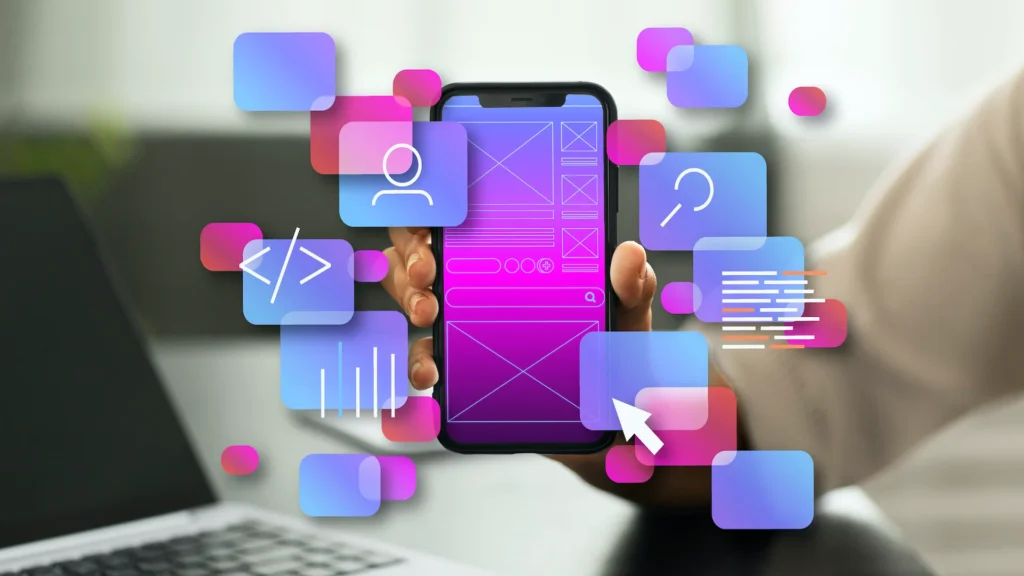Thinking about building a mobile app? You’re not alone! Whether you’re a startup, a business owner, or just someone with a brilliant idea, mobile app development can seem overwhelming. But don’t worry—I’ve got you covered! Let’s break it down in a simple FAQ-style guide.
1. Why should I invest in a mobile app?
A mobile app can:
- Boost brand engagement and customer loyalty.
- Make services more accessible and convenient.
- Increase revenue through in-app purchases or ads.
- Improve business efficiency with automation.
- Give your brand a competitive edge in today’s digital world.
2. What are the types of mobile apps?
There are three main types:
- Native Apps (iOS/Android) – Built specifically for a platform (better performance, but higher cost).
- Hybrid Apps – A mix of native and web technologies (cost-effective, but slightly lower performance).
- Progressive Web Apps (PWA) – Works like an app but runs on a web browser (fast and lightweight but lacks some advanced features).
3. What’s the mobile app development process?
Here’s a simplified roadmap:
- Idea & Planning – Define your app’s purpose and target audience.
- Design & Prototyping – Create wireframes and mockups.
- Development – Build the app using programming languages and frameworks.
- Testing – Identify and fix bugs before launch.
- Launch & Marketing – Deploy your app and promote it.
- Maintenance & Updates – Keep your app running smoothly with regular updates.
4. How long does it take to develop a mobile app?
It depends on complexity:
- Simple apps – 2-4 months.
- Medium-complexity apps – 4-9 months.
- High-end apps – 9+ months.
5. How much does it cost to build an app?
Cost varies based on features, platforms, and developers:
- Basic apps – $10,000 – $50,000
- Mid-level apps – $50,000 – $150,000
- Complex apps – $150,000+
6. What platform should I choose—iOS or Android?
● iOS (Apple) – Higher revenue per user, great security, but limited device compatibility.
● Android (Google) – Wider audience, flexible customization, but more device fragmentation.
●HarmonyOS (Huawei) – Growing ecosystem, smooth cross-device integration, but limited global app availability.
Both? – If budget allows, launching on multiple platforms maximizes reach.
7. What are the must-have features in a mobile app?
Every app is different, but these features are crucial:
- User-friendly UI/UX
- Push notifications
- Fast loading speed
- Offline capabilities
- Secure login/authentication
- In-app payments (if needed)
- Analytics to track user behavior
8. How can I make my app successful?
- Solve a real problem – Apps that provide genuine value thrive.
- Keep it simple – A clean and intuitive UI keeps users engaged.
- Optimize for performance – No one likes a slow or buggy app.
- Market aggressively – Use social media, app store optimization (ASO), and influencer marketing.
- Listen to user feedback – Regular updates keep users happy.
9. Do I need a mobile app developer, or can I build it myself?
If you’re tech-savvy, you can use no-code or low-code platforms like FlutterFlow, Adalo, or Bubble to create a basic app without programming skills. These tools are great for MVPs (Minimum Viable Products) or simple applications.
However, if you need a professional, scalable, and high-performance app with advanced features, security, and seamless user experience, hiring a mobile app developer is the best choice. A skilled developer ensures custom functionality, cross-platform compatibility, and long-term maintenance, making your app future-proof.
10. How do I maintain and update my app?
Regular maintenance is crucial to keep your app secure, functional, and competitive. Without updates, your app may become buggy, vulnerable to security threats, or incompatible with new devices and operating systems.
App maintenance includes:
✅ Bug fixes & security updates – Protect user data and prevent crashes.
✅ Adding new features – Keep users engaged by adapting to their needs and feedback.
✅ Ensuring OS compatibility – Prevent issues when iOS, Android, or HarmonyOS release new updates.
✅ Performance optimization – Improve speed, responsiveness, and overall user experience.
A well-maintained app boosts user satisfaction, retention, and long-term success in the market! 🚀
Final Thoughts
Mobile apps are a game-changer for businesses and startups. If you’re ready to take the plunge, start with a clear vision and the right team!
🚀 Need help building your mobile app? Let’s turn your idea into reality. Contact us today!
#MobileAppDevelopment #AppDevelopment #TechSolutions #BusinessGrowth





